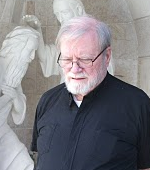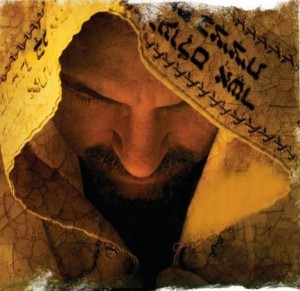 by Fr. Patrick Henry Reardon
by Fr. Patrick Henry Reardon
In the Gospel of St. Luke, the last of his “four beatitudes” includes a detail not found in the parallel place in St. Matthew; it is a reference to those who
“revile and cast out your name as evil’ (Luke 6:22).
Our understanding of this reference should begin, I think, with the observation that it is oddly worded:
“Cast out your name.”
What does Luke have in mind here?
The immediate context indicates persecution:
“Blessed are you when men hate you and when they exclude you.”
Comparing this verse with the corresponding place in Matthew (5:10-11), we observe that only Luke mentions a social exclusion (aphorisosin hymas) and a casting out of your name (ekbalosin to onoma hymon). These expressions suggest that Luke has in mind a particular situation, a setting more specific than what is indicated in Matthew.
What does Luke understand by the expression, “your name”? And what is signified when this name is “cast out”? If we read him closely, I believe, we see that these expressions embody Luke’s own experience.
Luke apparently joined Paul’s missionary team about the same time as Timothy. He included himself as part of the mission that sailed from Troas to Macedonia in the spring of A.D. 49. This journey, he wrote, came about as Paul’s response to a revelatory dream:
“Now after he had seen the vision, immediately we sought to go to Macedonia, concluding that the Lord had called us to preach the Gospel to them. Therefore, sailing from Troas, we ran a straight course to Samothrace, and the next day came to Neapolis” (Acts 16:10-11).
 In the author’s three references to “we” and “us” the reader discerns Luke’s own inclusion in this venture. There is no biblical evidence that Luke knew Paul—or was a Christian— prior to the latter’s ministry in Phrygia, Galatia, and Troas (16:6-8).
In the author’s three references to “we” and “us” the reader discerns Luke’s own inclusion in this venture. There is no biblical evidence that Luke knew Paul—or was a Christian— prior to the latter’s ministry in Phrygia, Galatia, and Troas (16:6-8).
Thus, when Luke joined Paul, he attached himself to a group already known by the name “Christians.” They had received that name several years earlier at Antioch, the first place where Jews and Gentiles assembled to form a single congregation (11:26). When Luke included in his version of the beatitudes a reference to “your name” (onoma hymon), the name he had in mind was “Christians.” Those called “Christians,” he knew, were outcasts.
In this respect, it is instructive to observe that a note of persecution also attends the only other two places where the word “Christian” is found in the New Testament. Thus, it was during Paul’s trial in Caesarea that Herod Agrippa remarked to him,
“You almost persuade me to become a Christian.”
Paul, in response, referred to the tokens of his suffering for that name:
“I would to God that not only you, but also all who hear me today, might become both almost and altogether such as I am, except for these chains” (26:28-29).
In the final appearance of the name “Christian” the reference to persecution is even more explicit. St. Peter, writing to “the pilgrims of the Diaspora,” hoped that none of them would suffer as a murderer or a thief. If, however, one of them should suffer
“as a Christian, let him not be ashamed, but let him glorify God in this name—en to onomati touto” (1 Peter 4:15-16).
When Luke wrote of a social exclusion associated with the name “Christian,” he had in mind those situations in which the disciples of Jesus were alienated from their local synagogues. It is possible that “the casting out of your name” referred to the Birkat ha-Minim, the cursing of heretics (including Christians) added to the “Eighteen Benedictions” by Rabbi Shmuel ha-Katan later the first century. (In the following century, Justin Martyr complained to the Jewish apologist, Trypho, about that prescribed cursing.)
The final and dramatic separation of Jews and Christians could also be the reference in Luke 6:22, but I suspect it is not. Much earlier than the Birkat ha-Minim, Luke was already familiar with cities in which Christian Jews were no longer tolerated in the local synagogues; they were obliged to move elsewhere with their newfound Gentile companions. Luke recorded that this happened at Pisidian Antioch (Acts 13:42-46), Iconium (14:1-5), Corinth (18:4-8), and, apparently, Rome (28:17-31).
